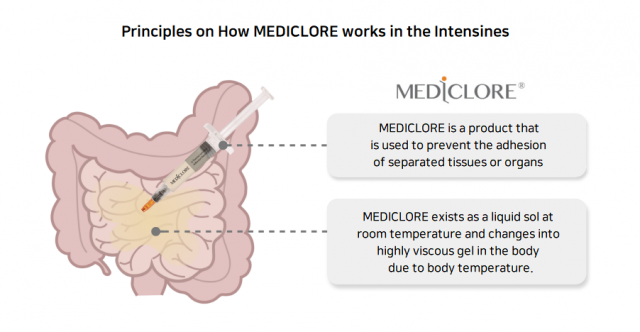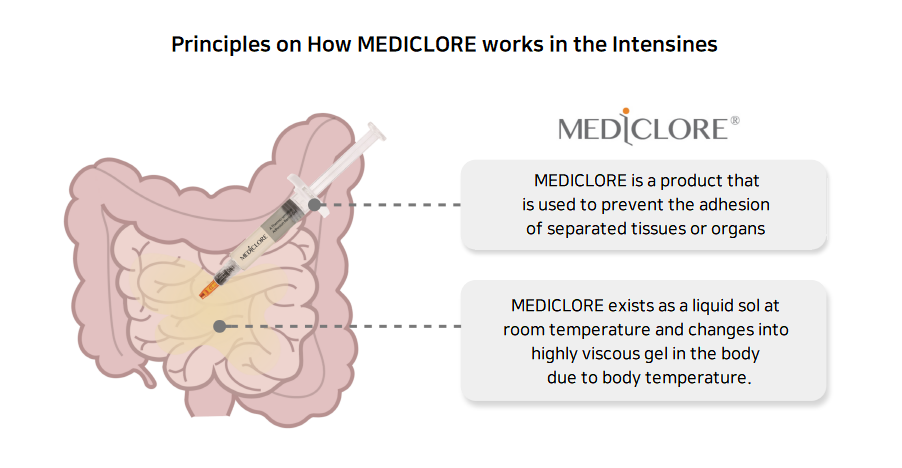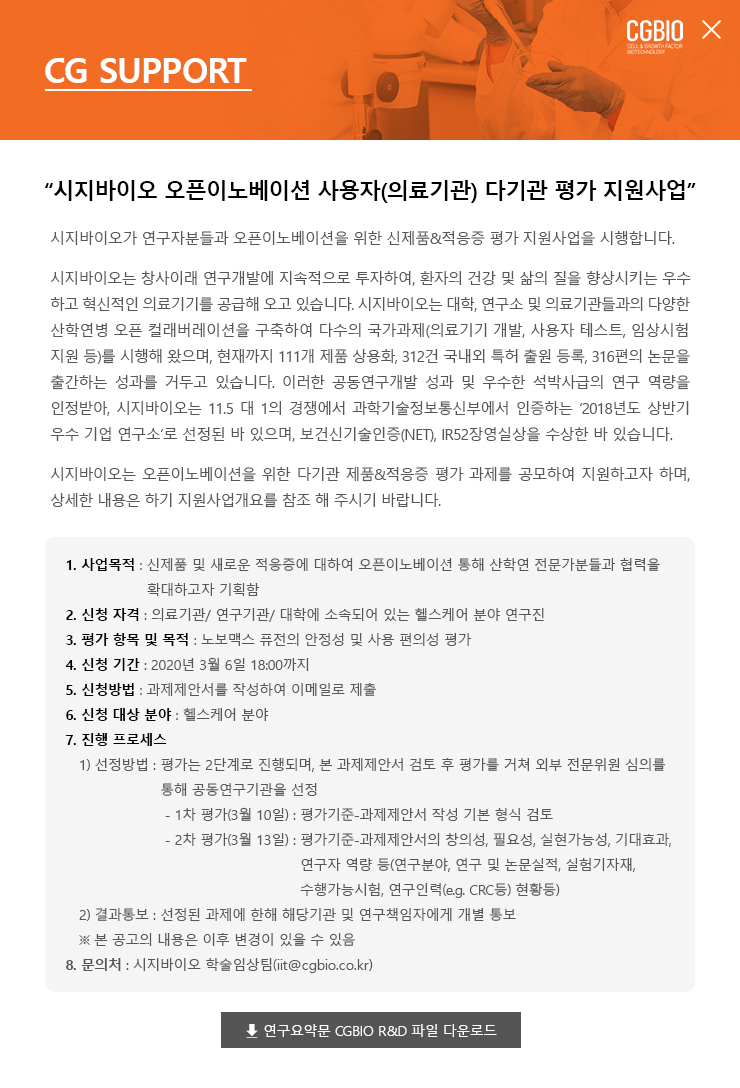CGBIO, a specialized bio-regenerative medicine company, is stepping up efforts to provide MEDICLORE, anti-adhesive agents, to a global market.
CGBIO (CEO Yu Hyun-Seung) announced 16 days that they had signed a contract worth about 5.6 billion won with CarePlusOne of Taiwan, a medical device sales and distribution company and OTIMA of Brazil to export MEDICLORE, the anti-adhesion agents, to Taiwan and Brazil.
Since its launch in Indonesia in May, CG BIO plans to build its position in the worldwide anti-adhesion agents’ market by signing export contracts with Taiwan and Brazil one after the other.
An anti-adhesion agent is a product that is used to prevent the adhesion of separated tissues or organs. In other words, following the surgery, it is inserted into an area where adhesion is expected to be performed to create a kind of barrier to prevent it from adhering to each other. It is used in a variety of surgical procedures, including spine surgery, joint surgery, mastectomy, obstetrics and gynecological surgery, prostatectomy and digestive surgery.
MEDICLORE exists as a liquid sol at normal temperatures and changes to a highly viscous gel due to body temperature. It is characterized by its ability to effectively prevent adhesion from occurring while the wound heals because it does not easily slip from the area where adhesion is expected following surgery.
MEDICLORE also has three functions: anti-adhesion, hemostatic and anti-bacterial. MEDICLORE’s main ingredients include poloxamer, chitosan and gelatin. Poloxamer generates a physical barrier film through a temperature-dependent change process, which directly prevents the occurrence of adhesion and increases adhesion compared to the liquid type to maintain it well in the applied area. Chitosan has an anti-bacterial effect, preventing the growth of super bacteria and E. coli. Gelatin helps in the prevention of bleeding based on its hemagglutination effect.
Anti-adhesion agents are used in a variety of surgical operations in Taiwan, including spinal fusion, joint surgery, and obstetrics and gynecological surgery, with 90,000 surgeries performed annually. Furthermore, only one product with anti-adhesion effects has been released in Taiwan and it is believed that MEDICLORE, which has all three effects of anti-adhesion, hemostatic, and anti-bacterial, would hold a large market share.
Although Brazil is classed as an emerging market in the field of anti-adhesion agents, factors such as surgery and sports-related injuries, an increase in the aging population, adhesion formation and the spread of awareness of adhesion-related diseases are driving the market growth. As a result, with orthopedic surgery as its primary target, MEDICLORE intends to engage in active marketing activities to take 50% of the global anti-adhesion agents’ market by 2025.
CEO Yu Hyun-Seung said, “The medical materials markets in Taiwan and Brazil have the most potential for growth, and we are pleased to see MEDICLORE, triple-effect anti-adhesion agents with superior technology, enter the market and “CGBIO will continue to research and develop innovative products based on bio-regenerative medicine technology in the future, in order to deliver solutions that will help patients throughout the world live healthier lives.”



